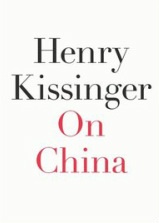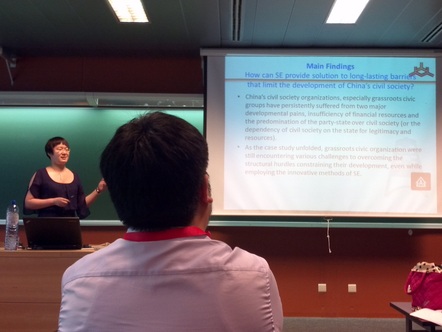 "Elevating diplomacy and development alongside defense in order to build a better, safer world". This is the mission of the US Global Leadership Coalition. What this noble ambition at least demonstrates is the fact that diplomacy and development have for a long time NOT been leading in foreign policies of the US. The first paragraph of their recent report on America's 'Smart Power' states it bluntly: America’s first line of defense abroad are its diplomats and development experts. A shocking perspective for those still believing in US global peace and democracy objectives. Kissinger on China During the holidays I finally had time to read Kissinger’s account of the US-China relationships. First I thought the book was about China. While reading it I discovered I had to include the author in the title (which the cover of the book already suggests). The book provides Kissinger’s personal perspectives on Chinese-US foreign policies and gives an interesting account of how geopolitics plays out or sometimes completely misses the point (at least in the perspective of Kissinger). Returning from my holidays watching the images coming out of Syria and listening to the US response to them it occurred to me how images really play their part in building up the case for a US intervention in Syria. Leading or following I also noticed that the network I just referred to had started following me on twitter, for whatever reason (possibly as a result of me following them in the first place). And I wondered: How in the world will the US lead other nations? Can we truly speak about global leadership? And is such leadership desirable to be in the hands of the US? A couple of years ago Hillary Clinton wrote her QDDR under the title: “Leading through Civil Power”. Again the question: Who is leading and who is following? The Arab ‘spring’ turned into a hot summer already. Will an intervention in Syria bring some rain drops or will it drop something else? We may hope that US support for people movements in countries with dictatorial regimes is really aiming at restoring democracy and not about the first line of defense. Self-interest However, self-interest is deeply embedded in US foreign policy directed towards international peace and stability. If the US geo-political example is something to be followed, what are the fruits that make it worth selling? This question intrinsically links US domestic policy objectives to global leadership claims and triggers the development agenda to really take into account realities at home with regard to social and economic affairs. In this geopolitical landscape every country has to position itself. Sometimes as a collective in coalition with others, sometimes being the odd one out. What is needed is to identify who is really in the lead, even in the case of possible US aggression in the Middle-East, and whether that leadership is worth following. In the meantime we may realise that the state is no longer in the lead and civillians may no longer be in control.  Almost a month ago I attended a conference on social entrepreneurship organized by the EMES network. Though the network already exists for quite a while, it seems to gain momentum in terms of its potential to deliver for sustainable development. A number of scientists have been working hard for over a decade now to bring thinking about the third sector to a different level. After studying a variety of contexts in Europe it seems the network is ready to expand worldwide and reach out to the far East and the deep South, bringing South-American and Asian perspectives into the equation. What is apparent though is that connections are made at the scientific level and not yet at societal level. Exchanges between academics are cautiously taking place between China, Taiwan, Korea and the Philippines. Politically not the best friends. However, the science connection seems to provide the safe space to connect and exchange in a non-threatening environment with much respect for each others challenges and local contexts. The safe space is partly there due to the absence of rather vocal international civil society organizations that could dominate the discourse. However, with social entrepreneurs now entering the scene, civil society elements may come in forcefully distorting the harmony while challenging academics to become more practical and apply the concepts to local policies and have them transformed into solid institutions. Right after the conference a new research program was launched: the ICSEM project, comparing social enterprise models from across the world. Experienced and young researchers as well as PhD students are invited to join in. The initiators of the project have done well in preserving interaction to researchers only, providing the required academic distance to the object of study. At the same time the results will be eagerly awaited for by policy makers that currently lack any decent theoretical framework about how and when to involve social entrepreneurs. Will the social economy provide an alternative to traditional civil society actors or is it an intrinsic part of it? Should civil society organizations reinvent themselves as social enterprises or should they breed them? Questions like these will need to be answered in the coming years to be able to see what and for whom social enterprises can deliver, and whether individual citizens are empowered or disempowered through their presence. |
About meMy name is Reinier van Hoffen. U®Reading
Click here for a summary.
Also find the text of a lecture Dr. Achterhuis held at the 2012 Bilderberg conference. Archives
August 2022
|
AddressNachtegaallaan 26
Ede, the Netherlands |
Telephone+31 (0)6 1429 1569
|
info@uraide.nl
|
 RSS Feed
RSS Feed
















